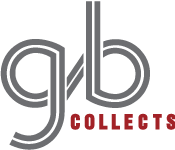
Every industry or niche has its own unique language, and debt collection is no different. When talking to experts from a collection agency or your accounts receivable department, they sometimes assume that everyone is familiar with the lingo. However, some essential debt collection acronyms are not common knowledge, and it’s up to you to spruce up your understanding of these terms.
There’s nothing wrong with admitting you don’t know some of the terms, and while you can always get help from experts around you, we are going to define these top nine common acronyms used in collections to give you a great head start.
DBA
This is short for Doing Business As. It refers to any registered name that a company uses that isn’t its legal name. DBA might be used interchangeably with Also Known As, and these terms are essential to know because they alert you to the identity of any businesses you are working with. This is especially important when making a credit application.
DSO
Short for Days Sales Outstanding. It refers to the average number of days it takes for a company to fulfill an invoice after a sale has been made. Calculating DSO is important because it’s a measure of how healthy a business’s cash flow is.
For instance, if a company generally gets to collect revenue soon after a sale, then they have a healthy cash flow. Typically, DSO is calculated on a monthly, quarterly, or annual basis, and the calculations involve dividing the accounts receivable for a specific period by all the credit sales within that period and then multiplying the result with the number of days in the given period.
CEI
The Collection Effectiveness Index can be used by a collection agency to measure the effectiveness of its collection strategy and efforts. Similar to the DSO mentioned above, CEI gives a better idea of how healthy the business’s cash flow is.
However, the basic formula for calculating CEI is a bit more complex. The result is expressed as a percentage, and the closer the number is to 100%, the more effective the collection strategy.
EOM
Net End of Month is commonly used when invoicing to indicate that the invoice is due to be paid 30 days after the end of that current month. If the invoice states that “net 15 EOM,” it means that payment must be made in full within 15 days following the end of the month.
This is in contrast to MOM or Middle of the Month, which is usually accompanied by a discount as an incentive to customers that make early payments.
FDCPA
The Fair Debt Collection Practices Act is a federal law that restricts collection efforts in terms of when and how individuals who owe money should be contacted. However, The FDCPA only applies to individuals, not to business debt.
NSF
Suppose a check has bounced. There are many reasons why this could happen, including Non-Sufficient Funds. Another reason behind a check that bounces could be a closed account. In any case, NSF helps a collection agency understand the real problem, so they know how best to solve the situation.
IACC
The International Association of Commercial Collectors is the primary organization in the U.S. that deals with commercial or business-to-business collection agencies. However, keep in mind that each collection agency must adhere to the relevant laws within their state and should be registered with the right associations and organizations in order to be considered reputable. That way, when a person is looking for a collection agency, they will form a good first impression that influences them to hire.
O.A.
This simply means open account and refers to a credit account with no limits. A buyer with an open account will therefore be able to purchase products or services without applying for credit each time.
However, this kind of arrangement carries more risk to the creditor because it’s easy for customers to accumulate a large amount of debt, which they then struggle to repay. That’s why an open account should only be established if the customer and company have a very strong business relationship. Additionally, the customer should have a clean credit report.
ROI
Return on investment is one of the most commonly used business terms that also applies to collection agencies. In short, it helps a collection agency determine if the amount of resources they are spending trying to collect an unpaid bill is worth it.
We are happy to have helped you understand these acronyms better, and if you’re looking for a reputable collection agency, we are also happy to be of service!

